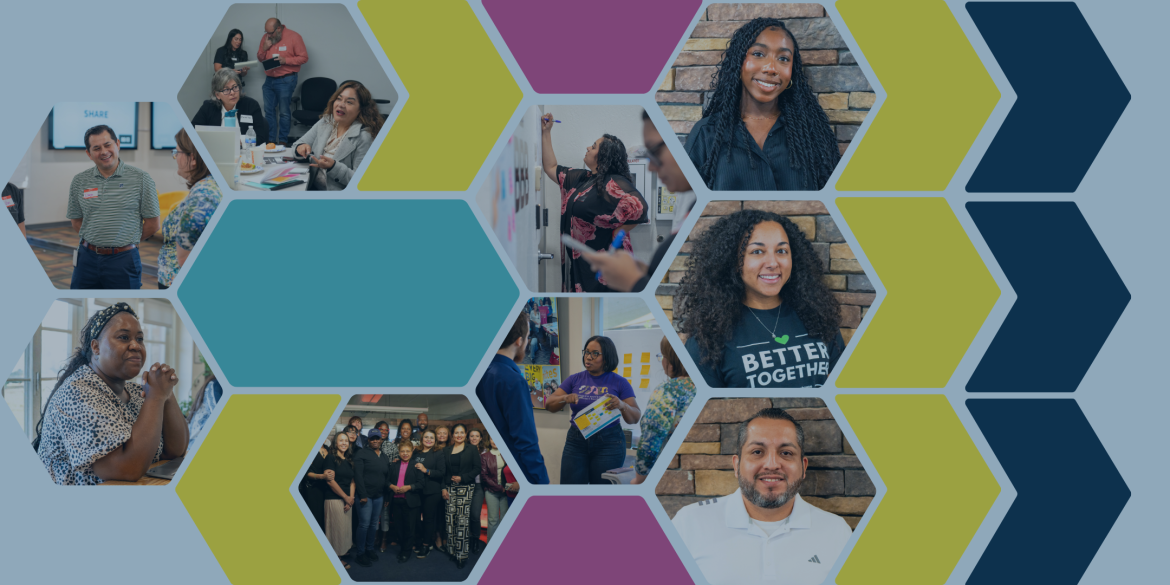When you hear “community health,” what comes to mind? It’s easy to picture hospitals, clinics, or medical services, but community health equity encompasses so much more. Achieving true health equity means ensuring every individual has access to the resources they need for a safe, healthy, and fulfilling life. This includes aspects like financial stability, social support networks, and accessible education—factors that might not immediately come to mind.
As applications open for the next cohort of the VOA Futures Fund Community Health Incubator powered by SEED SPOT, let’s take the opportunity to consider how entrepreneurs from diverse fields can contribute to community health. You might be surprised to find that your venture fits within a broader definition of health equity.
In this post, dive into some unexpected areas that play a crucial role in community health and hear examples from three of our inspiring ventures—Transition, Walomi, and Giving Credit—to see how diverse solutions can drive positive change.
Community Health Beyond Medicine: Unexpected Pathways to Equity
Community health isn’t limited to medical services. It’s about creating supportive environments that help people thrive physically, emotionally, and financially. Here are a few key categories where community health takes root in ways that might not immediately come to mind:
1. Education and Workforce Development
Health and financial stability are closely linked. Economic opportunities provide individuals with the stability to pursue healthcare, nutritious food, and safe housing. Transition, founded by Kayla Wright-Jackson, connects underserved communities to career opportunities in healthcare addressing both employment gaps and healthcare accessibility through workforce development.
How Transition Fits: Through Education and EdTech, Transition builds pathways into healthcare careers for individuals who might otherwise face barriers. By empowering people with stable jobs, Transition supports long-term economic health, which ultimately benefits the entire community.
2. Financial Security and Peer Lending
Financial health is foundational to overall well-being, yet it’s often overlooked in discussions about community health. Without access to fair lending options, many individuals turn to high-interest loans, leading to a cycle of debt and stress. Giving Credit, founded by David Henderson, offers a solution by creating a community-based lending platform where people can support each other financially without the exploitation of predatory loans.
How Giving Credit Fits: By focusing on Financial Security and Community Development, Giving Credit provides a platform for financial resilience. Peer lending, loan guarantees, and community-driven credit reporting create a supportive financial ecosystem, helping individuals maintain stability and invest in their futures without the burden of excessive debt.
3. Social Supports and Maternal Health
Social networks and culturally competent care play vital roles in community health because feeling supported lowers stress and improves health outcomes. Walomi, founded by Layo George, addresses this through a community-centered approach to maternal health for women of color. Walomi offers a culturally relevant support system, bringing together mental health resources, expert guidance, and community support for women navigating pregnancy and motherhood.
How Walomi Fits: Walomi combines Housing and Social Supports and Human Rights and Equality to create a space where women feel safe, supported, and understood, tackling systemic disparities and reinforcing the importance of culturally competent care as a pillar of community health.
4. Community Development and Economic Empowerment
Community health is often strengthened through economic empowerment initiatives that foster resilient neighborhoods. Both Transition and Giving Credit contribute to community development in unique ways. Transition builds a pipeline of healthcare workers, which bolsters the local health workforce, while Giving Credit’s peer lending platform strengthens economic resilience by providing individuals with safe financial options.
How They Fit: By investing in Community Development, both ventures create lasting positive impacts that extend beyond individual beneficiaries. Whether it’s providing stable employment or financial security, these initiatives build a stronger, healthier community infrastructure that benefits everyone.
Expanding the Definition of Community Health Equity
Community health equity is ultimately about breaking down barriers to well-being and ensuring that everyone—regardless of their socioeconomic status, cultural background, or geography—has the resources and opportunities they need to thrive.
There are countless paths to achieve this goal. If you’re an entrepreneur wondering if your venture is working in community health equity, ask yourself:
- Does my solution address a barrier to health, access, or stability?
- Does it create supportive systems, empower people financially, or improve access to critical resources?
If the answer is yes—first—thank you for your work creating healthier, more equitable communities! Second—we want to help! You might benefit from the upcoming VOA Futures Fund Community Health Incubator powered by SEED SPOT designed to empower innovators like you with the resources, mentorship, and partnerships needed to scale your impact.
With the support of Volunteers of America (VOA) and SEED SPOT, participants will join a dynamic cohort of entrepreneurs, receive a $15,000 capacity grant, and have opportunities to secure additional funding. Together, we’ll advance solutions that support health, equity, and access across communities.
Ready to Apply?
Applications are now open. If your venture addresses any aspect of community health, from financial empowerment to social supports, we encourage you to apply. You could be the next innovation that transforms a community’s health and well-being. Learn more and start your journey toward making a greater impact in community health equity.



